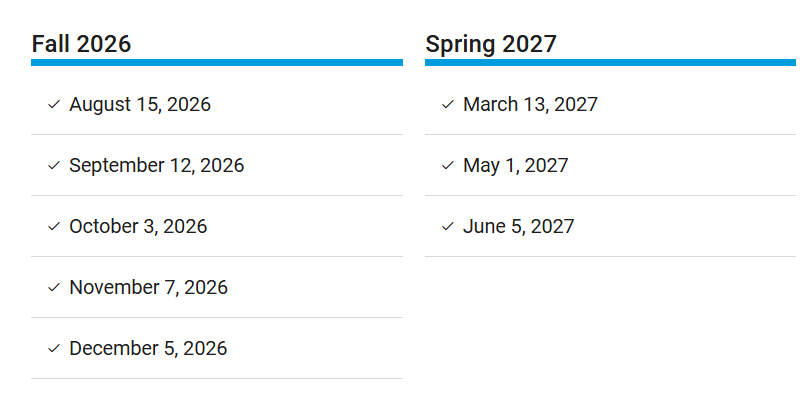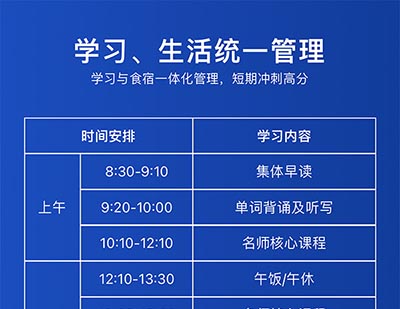各位同学们们大家好,在本月10日的时候,托福有一个上午和下午场的考试,而托福独立写作题目当中,也出现了一个我们生活类的话题,三选一,关于改变生活习惯重塑健康的方式,下面我们一起来看看这篇写作范文吧。

改变生活习惯重塑健康,应该用什么方法?
a. 提高自律意志力
b. 寻找共同目标者
c. 咨询专家的建议
Currently, opinions are mixed regarding how to change one s lifestyle and habits. Among the three suggestions given, my view is that it could be the best choice to improve one s willpower and to learn more self-discipline.
Firstly, increasing one s willpower enables one to be more determined and well-organized, and such quality is the key to making a real difference in one s lifestyle. With increased willpower and greater discipline, a person could manage to prioritize his routine matters and prepare a daily schedule, making it possible to avoid distractions and to resist temptations. Following the strict schedule, one stands a greater chance of achieving intended goals step by step, such as losing weight or quitting smoking. Thus, a healthier lifestyle becomes achievable rather than an uphill task. For example, during my university years, I used to stay up very late because I couldn t resist the temptation of games and amusing short videos on social media platforms like TikTok. As long as I pushed a few buttons, what greeted my eyes were a great variety of gaming videos and fascinating lives treaming. At that time I always burned the midnight oil, which seriously damaged my physical and mental health. However, since I decided to make a change and break such bad habits, I tried to use a personal planner and an alarm clock to remind me of my duties and priorities, and this worked quite well. Specifically, with the help of these tools, I became more time-conscious and less addicted to social networking sites as well as online games. This paved the way for my gain of willpower and self-discipline, thus preventing me from staying up very late anymore. In the end, all my efforts paid off, creating a virtuous circle of a healthy lifestyle.
Secondly, some may argue that cooperating with a like-minded friend with a similar goal is a good idea, but there is one critical factor that goes unnoticed: individual differences. Despite the shared goals, two people may have totally different ways of thinking, habits, and other important resources such as time and money. If such differences are too large, both could be out of sync and this defeats the purpose of forming a self-help group. For example, I once tried to lose weight by swimming with my classmate Jane, a girl living in the city center of Shanghai city. Everything seemed nice at first, but it didn t take long for me to realize the main problems. One major problem is that she could have easy access to facilities like swimming pools because she lived downtown, while I had to commute back and forth to get there. Our difference in accessibility gradually set us apart and hurt my morale; without great willpower and discipline, soon I became reluctant to go swimming together anymore, even if we had the same goal.
Thirdly, when it comes to seeking advice from experts, it is true that professional people can offer useful and systematic plans for improvement, regarding sleeping habits, diet, etc. However, old habits may die hard and a person could still maintain his original lifestyle if he does not have the strong willpower to execute the plans given by experts. A good case in point is my wife’s experience of losing weight. My wife is a workaholic who kept working around the clock and then chose to overeat to de-stress, so in this process she gained a lot of weight. Feeling desperate and depressed, she turned to professional nutritionists for help and they all suggested having salad for three meals. Unsurprisingly, without a good plan and a strong will, she failed to give up he bad habits of overeating and her health condition even worsened.
以上就是我们给大家整理的托福写作高分范文了,希望对备考的同学们有所帮助!另外如果大家在备考托福写作当中有任何疑问,都可以直接咨询我们,另外还有就是如果大家想要最新的托福写作语料和话题预测,可以在线咨询老师,获取领取资料的方式。

a. 提高自律意志力
b. 寻找共同目标者
c. 咨询专家的建议
Currently, opinions are mixed regarding how to change one s lifestyle and habits. Among the three suggestions given, my view is that it could be the best choice to improve one s willpower and to learn more self-discipline.
Firstly, increasing one s willpower enables one to be more determined and well-organized, and such quality is the key to making a real difference in one s lifestyle. With increased willpower and greater discipline, a person could manage to prioritize his routine matters and prepare a daily schedule, making it possible to avoid distractions and to resist temptations. Following the strict schedule, one stands a greater chance of achieving intended goals step by step, such as losing weight or quitting smoking. Thus, a healthier lifestyle becomes achievable rather than an uphill task. For example, during my university years, I used to stay up very late because I couldn t resist the temptation of games and amusing short videos on social media platforms like TikTok. As long as I pushed a few buttons, what greeted my eyes were a great variety of gaming videos and fascinating lives treaming. At that time I always burned the midnight oil, which seriously damaged my physical and mental health. However, since I decided to make a change and break such bad habits, I tried to use a personal planner and an alarm clock to remind me of my duties and priorities, and this worked quite well. Specifically, with the help of these tools, I became more time-conscious and less addicted to social networking sites as well as online games. This paved the way for my gain of willpower and self-discipline, thus preventing me from staying up very late anymore. In the end, all my efforts paid off, creating a virtuous circle of a healthy lifestyle.
Secondly, some may argue that cooperating with a like-minded friend with a similar goal is a good idea, but there is one critical factor that goes unnoticed: individual differences. Despite the shared goals, two people may have totally different ways of thinking, habits, and other important resources such as time and money. If such differences are too large, both could be out of sync and this defeats the purpose of forming a self-help group. For example, I once tried to lose weight by swimming with my classmate Jane, a girl living in the city center of Shanghai city. Everything seemed nice at first, but it didn t take long for me to realize the main problems. One major problem is that she could have easy access to facilities like swimming pools because she lived downtown, while I had to commute back and forth to get there. Our difference in accessibility gradually set us apart and hurt my morale; without great willpower and discipline, soon I became reluctant to go swimming together anymore, even if we had the same goal.
Thirdly, when it comes to seeking advice from experts, it is true that professional people can offer useful and systematic plans for improvement, regarding sleeping habits, diet, etc. However, old habits may die hard and a person could still maintain his original lifestyle if he does not have the strong willpower to execute the plans given by experts. A good case in point is my wife’s experience of losing weight. My wife is a workaholic who kept working around the clock and then chose to overeat to de-stress, so in this process she gained a lot of weight. Feeling desperate and depressed, she turned to professional nutritionists for help and they all suggested having salad for three meals. Unsurprisingly, without a good plan and a strong will, she failed to give up he bad habits of overeating and her health condition even worsened.
以上就是我们给大家整理的托福写作高分范文了,希望对备考的同学们有所帮助!另外如果大家在备考托福写作当中有任何疑问,都可以直接咨询我们,另外还有就是如果大家想要最新的托福写作语料和话题预测,可以在线咨询老师,获取领取资料的方式。
展开查看全文
本网站注明"来源:朗思教育"的所有文字、图片和音视频稿件,版权均属杭州朗思教育咨询有限公司所有,任何媒体、网站或个人未经本网协议授权不得转载、链接、转贴或以其他任何方式复制、发表。
已获得本网站授权的媒体、网站,在使用时必须注明"来源:朗思教育",违者本网将依法追究法律责任。
课程推荐
-

【朗思】雅思预备B冲6分班
滚动开班 课时数:20/60课时 -

【朗思】托福强化冲刺90分课程(S2)
滚动开班 课时数:32/96课时 -

【朗思】新SAT 1400分强化班
滚动开班 课时数:32/96课时 -

【朗思】GMAT强化班
滚动开班 课时数:24/72课时 -

【朗思】A-level VIP 1对1课程
滚动开班 课时数:/
















